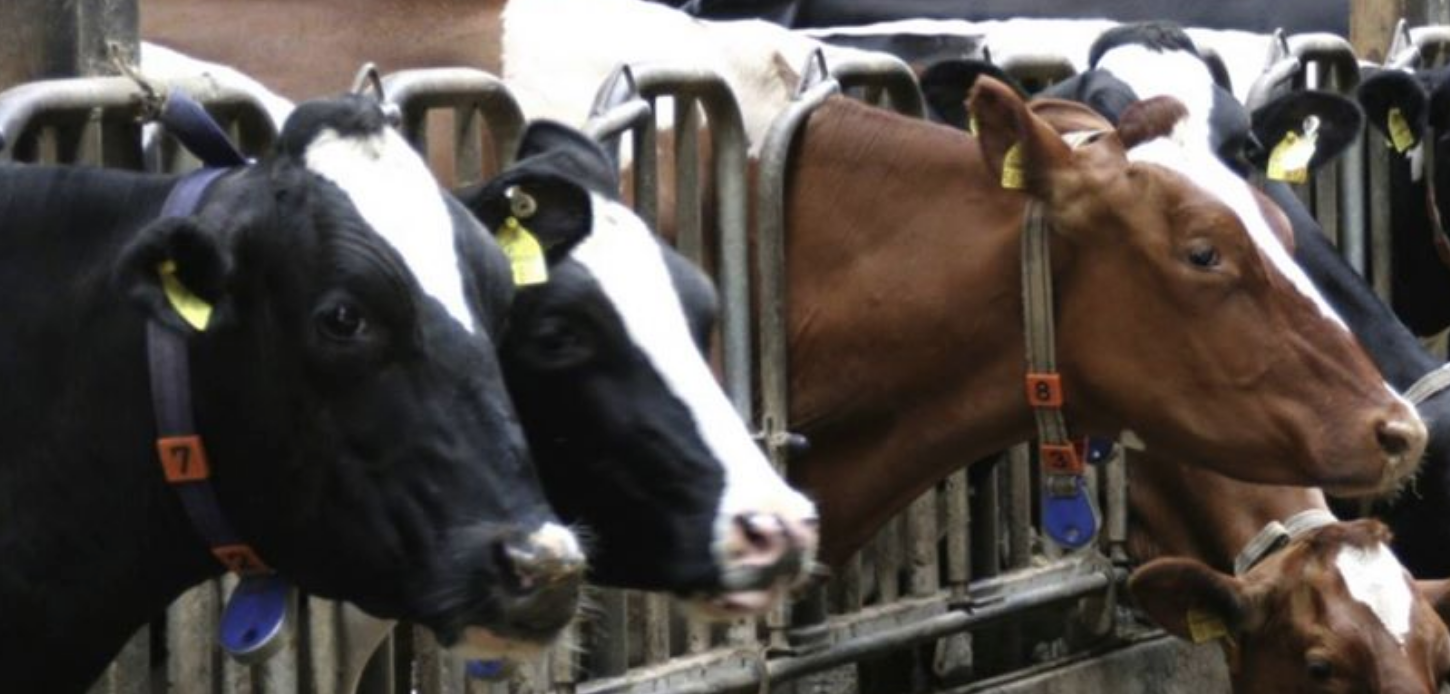
By Craig Holdrege
Reprinted from The Nature Institute on Facebook (visit them at natureinstitute.org)
Some years ago, researchers interviewed more than 100 conventional dairy farmers in the U.S. about their farm management practices. Asked about the welfare of their cows, a majority of the farmers said that, from an animal welfare perspective, their cows were better off than they had been twenty years ago. They cited, for example, improved nutrition (concentrate feed and additives), better veterinary care, better ventilation in barns, and free stalls in which the animals can move around.
But the farmers didn’t mention that the cows, on a majority of the farms, had been dehorned and had their tails cut short. The cows were usually slaughtered after only two or three lactations (when they were four or five years old) due to a drop in milk production and a variety of ailments — both related to the stresses of producing large quantities of milk. Moreover, on most of these farms, the cows never stepped onto an open pasture to graze freely, as cows are born to do.
The researchers found the farmers’ response surprising. The farmers weren’t considering that cows naturally would prefer life on a pasture to the confined conditions of an industrial farm operation. The researchers concluded that farmers were “not considering the view from the perspective of the cow.” They viewed the cow’s welfare from the perspective of improvements within the already existing industrial management system. They had lost sight of the cow as a horned, tailed, grass-grazing animal.
This is a troubling symptom of a crucial problem: Do we view our actions within the confines of the already existing status quo, which itself may be unhealthy? Or, do we break through those confines and work to acknowledge and understand the beings we are involved with from their point of view? This would demand taking a fresh look at what we are doing and how we are considering the world. It would involve a commitment to the other in its qualities and needs.
The philosopher Martin Buber spoke of moving from an “it” relation to the other, to a “Thou” relation. This may seem a distant goal, but we can take many steps that lead toward it. This work opens us to the rich and varied voices in the world that are just waiting to be heard. The more these voices inform our understanding, the more we can act responsibly within the life of the planet.
This is a note that Craig wrote to friends of The Nature Institute in the fall of 2018. Much of the Institute’s work involves taking the kind of steps Craig describes above, as well as sharing them with others through our many publications and courses. You can find all of these - including our year-long, low-residency foundation course - on our website natureinstitute.org.

Añadir nuevo comentario